#gene expression profiling
Explore tagged Tumblr posts
Text
youtube
#lncRNA expression#follicular fluid#exosomes#obesity#polycystic ovary syndrome#PCOS#high-throughput sequencing#gene expression profiling#molecular mechanisms#biomarkers#metabolic syndrome#reproductive health#fertility research#ovarian function#non-coding RNA#genomics#endocrine disorders#therapeutic targets#diagnostic tools#personalized medicine#Youtube
0 notes
Link
#Transcriptomic profile#Bladder cancer#Gene ontology#Gene enrichment#RNA-Seq#Differentially expressed genes
1 note
·
View note
Note
hii <3 can i get a coffee with cinnamon, and some sugar cookies please :) the order's for gene from MYS 🥰

𝐨𝐫𝐝𝐞𝐫 𝟏𝟑: 𝐜𝐨𝐦𝐢𝐧𝐠 𝐫𝐢𝐠𝐡𝐭 𝐮𝐩 𝐟𝐨𝐫 𝐭𝐡𝐞 𝐥𝐨𝐯𝐞𝐥𝐲 𝐜𝐮𝐬𝐭𝐨𝐦𝐞𝐫!!
𝐭𝐚𝐠𝐬: established relationship, hurt/comfort, domestic/family
𝐚/𝐧: hi!! of course of course! i hope that you like it :)
𝐌𝐀𝐒𝐓𝐄𝐑𝐋𝐈𝐒𝐓 ☆ 𝐖𝐈𝐍𝐓𝐄𝐑 𝐄𝐕𝐄𝐍𝐓 𝐌𝐀𝐒𝐓𝐄𝐑𝐋𝐈𝐒𝐓

You sigh as you peek your eyes open, squinting into the dark to see the handsome side profile of Gene still staring up at the ceiling, his eyes wide open in restlessness just as you’d seen fifteen minutes ago.
“What are you thinking about?” you whisper, interrupting the silence of the bedroom, your voice barely carrying over the monotonous hum of the ceiling fan.
His fingers twitch before he runs them through his messy hair, quietly huffing a sigh of his own before turning on his side, lips twitching in contemplation. “Our conversation earlier.”
Your eyebrows twitch, heart rate quickening with nervousness.
Earlier, over dinner, the two of you had talked about your future, and that involved the topic of kids. You both agreed and came to the conclusion that you wanted to enjoy your time alone together for a while before you were ready for that. It was a good talk, but you had noticed he got quiet and a bit brooding after, his eyes distant when the two of you were watching TV—-like the information was bouncing off of him.
“…What about it?”
He half smiles, a bit sleepily, reaching out to brush his fingers on your cheek. “Don’t look so nervous, doll. It’s not about you.”
His smile falters, and he settles to rest his hand on the side of your face, the weight of it warm and comforting. You cover it with your own hand, squeezing gently, urging for him to continue.
“It’s…” He closes his eyes, swallowing thickly. “I’m scared.”
You can’t help the shocked expression that takes over your face, eyebrows raising and mouth parting.
“Scared? What are you scared of?” you whisper.
“That—when we have a kid—they’re gonna end up like me.”
“What?”
“I was a shitty person,” he continues, opening his eyes, a frustrated crease forming between his brows. “And I… part of it was because my dad wasn’t there but, even if I’m present, what if they end up as bad as I was?”
“Gene—”
“Don’t just say ‘you’re not like that anymore’, because I was, and they could be, too. They could have my personality, and go through that phase of treating other people like shit, and treating themself like shit.”
“Gene.” Your voice is firm. He grits his teeth to stop himself, jaw clenching as he stares at you, eyes soft despite his worry and frustrations. “That’s not even a possibility. You know why?”
He exhales, relaxing into your hand when you brush his bangs back from his forehead.
“Because you have changed. And you’ve fought to be as gentle as you are now. I think that’ll make you a hell lot more respectable. They’re gonna listen to you. I know it.”
His face is still tense, but he’s quiet now, hanging onto your every word. He swallows thickly again, a flickering of deep insecurity in those deep blues of his eyes, and the way they shine with the threat of tears is like a painful twist to the heart.
“I know it,” you continue. “because you’re worrying about it now. Way before they’re even around. Your going to love and care for them so much, and that means the most—no matter what happens or how they end up. You’re going to be the best father they could wish for.”
A beat of silence.
“…How did I land a sweetheart like you?” he murmurs shakily, almost to himself, grabbing your hand and turning to press a kiss to the palm of it.
“Because you’re a sweetheart, too.”
He snorts. “Oh yeah. That’s what they’ve always called me. Gene the sweetheart.”
“I never said you always were,” you’re quick to quip back, eyebrows raising.
He smiles now, leaning forward to seal his lips with yours before peppering a few along your cheekbone. “God, I love you.”
"I love you too."

©starhvney 2024. do not plagiarize, feed to any AI, or repost my works to any sites.
taglist: @wasting-away-on-the-internet @angelhyperfixates @valentique @arienic @dazedbydeath @theaquaticplant @starsbrightly @kalegrinch @izzybella1807 @marst4rz @vyladsgirl @allieyaaa @luvsymai @yoom-ss
#☆ star's inbox!#aphmau#aphmau mystreet#mystreet#mystreet x reader#x reader#gene x reader#aphmau gene#mystreet gene x reader
81 notes
·
View notes
Text
DAY 6215
Jalsa, Mumbai Feb 21, 2025/Feb 22 Fri/Sat 12:27 am
The body .. the gift of the ones that produced it .. the body that carries from birth all that it has inherited through the dna genes of the reproductive elements .. and which remains with select additions till it perishes .. and none in this entire hemisphere be alike or common ..
Each day is a revelation of the unimaginable structures it embellished to exist its limited bearing .. leaving behind the gifts it acquired to stimulate and empower or give impression of continuity in the challenges it faced during its life duration ..
Some enlightened minds collect and leave behind through debate discussion and writing what they were able to give in gifting .. many others remained silent .. bore the impress themselves and lived the life they wanted or desired ..
How does it contribute when shared .. we are all each different .. our sharing shall be be different too .. does the contribution hold then .. or are we to be enlightened , by the enlightenment of them that espouse .. it shall not have universatility , in the more democratic sense .. but ..
Does true universality exist ..
Ask and ye shall be challenged dabated and enveloped into a universe that professes the ultimate knowledge it maintains .. to be an outsider to it cause nt just concern to them that profess , but to you as well ..
Am i right in thought ? Was I too independent in view ? Does non following or follow be a negative environ ..
Numerals be the governing factor .. be the argument or lament ..
I can follow the Pied Piper and lead the unwanted to their destined elimination .. but do I need a Pied Piper .. that is assumed importance , levitated to a pinnacle of the know all ..
When the World discovers each day when it evolves each day , how can there be a pinnacle of the know all .. the know all has never stopped nor shall it ..
each believes in the oft heard expression :
Let us just BE ..
It be the most unconvincing element of expression language ..
Affection and love ..



we are all the celebrated armoured warrior, that face the intricacies of the twisted tree branch of life , represented , by it's smouldering withered presence in the presence of that young lady almost unseen , by its smallness .. yet pretty enough when given it's closed up lit face profile ..
AAAH .. too philosophic temper in the Blog of the DAY ..
let loose the act and deliver the creative designed and executed for a Brand by moi .. song tune singing. part writing, acting by the blogomaestra ..
बहुत ढूँढा, मिल नहीं रहा, जब मिलेगा तो डाल देंगे

अमिताभ बच्चन
94 notes
·
View notes
Text
Hello, everyone. It’s been such a long time since I last wrote on my blog. I’m not sure if there’s anyone who still remembers me, but I’d like to believe there is.
A long time ago, I used to love [Homestuck] so much that I drew a lot of fan art for it. Thanks to that, I was able to interact with so many people, answer questions, and even receive congratulations. I can’t express how happy I was during those times. It was one of the happiest periods of my life.
I wanted to communicate with everyone without relying on a translator, so I started studying English. However, once I began working, I became so busy that I neglected my English studies. I feel ashamed for not being more diligent.
There were times I thought about posting an update just to say hello, but my health deteriorated significantly, and I had to undergo treatment. Thankfully, I’ve recovered a lot and am doing much better now.
These days, I’ve been working on an original comic. It’s a project where I created everything from the story to the characters, and I’m truly enjoying it.
While drawing my comic, I set a new goal for myself: I want to share my comic with my friends here as well.
That’s why I’ve started studying English again, and today marks exactly one week since I resumed my studies. Since I’ve been away from English for such a long time, I’ve gone back to the basics and am starting from the very beginning. I’m working on it little by little every day, and I find it really enjoyable.
I hope to translate my comic into English as soon as possible so I can share it with all of you. Even though it’s not Homestuck, I hope my comic will be to your liking.
Please stay healthy, and thank you so much!

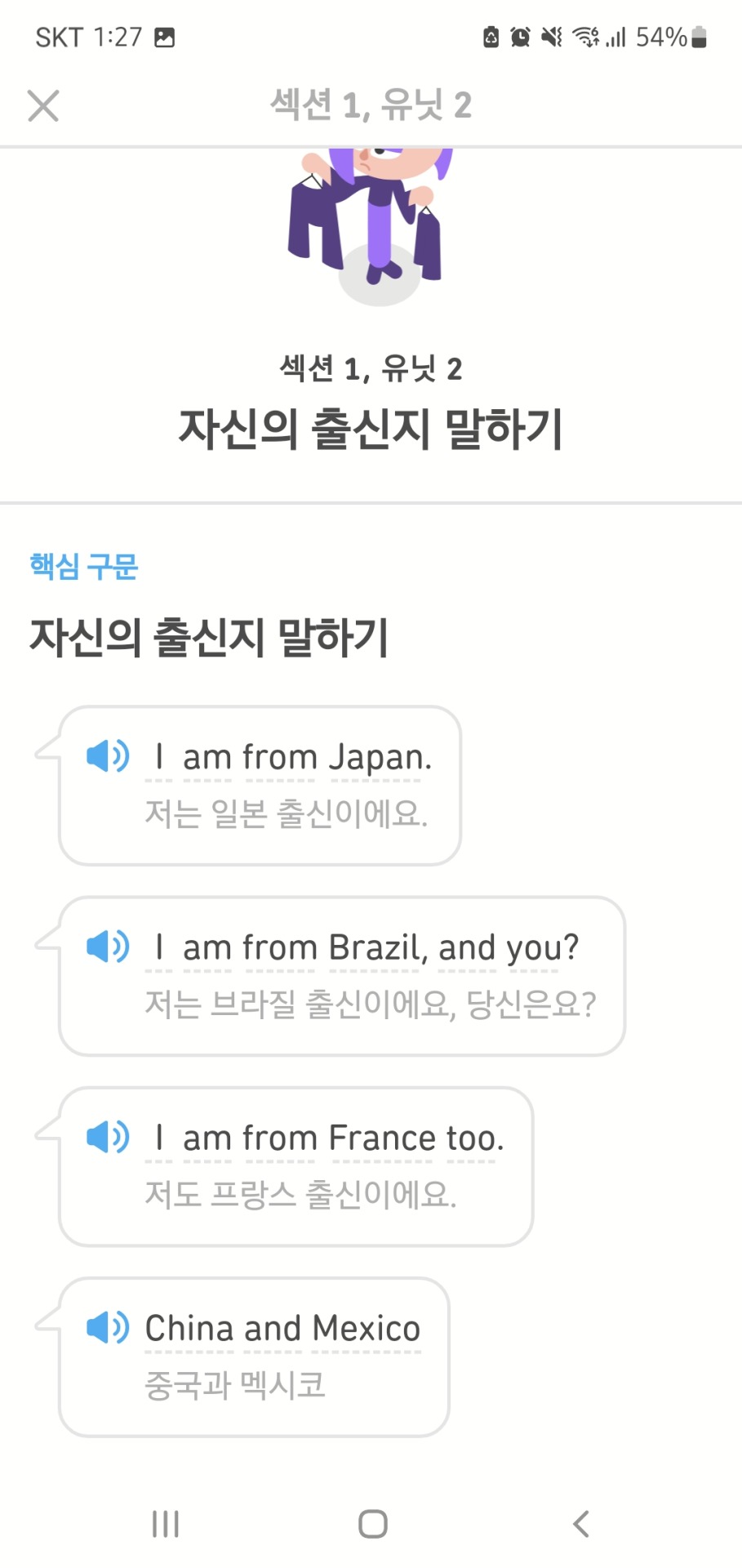
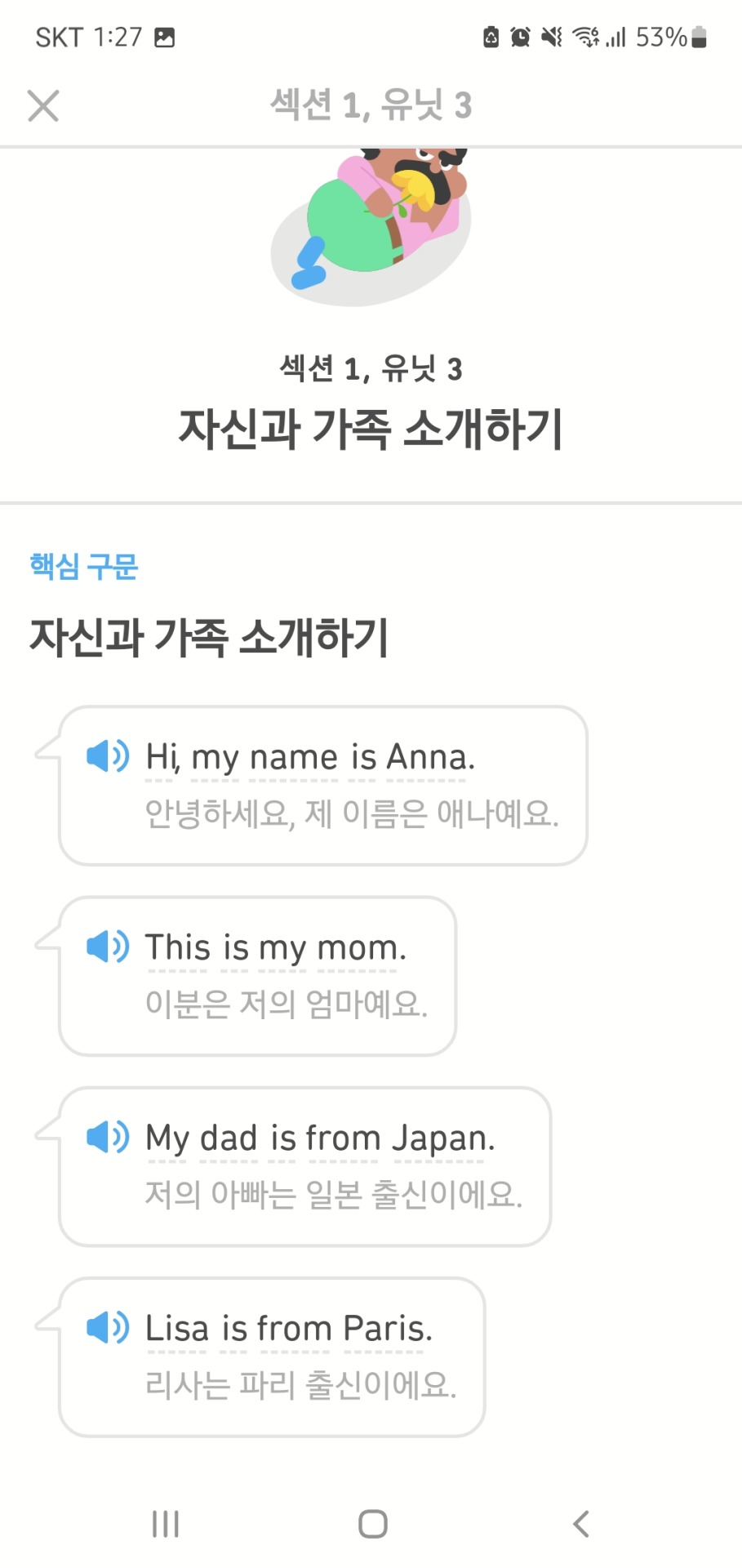
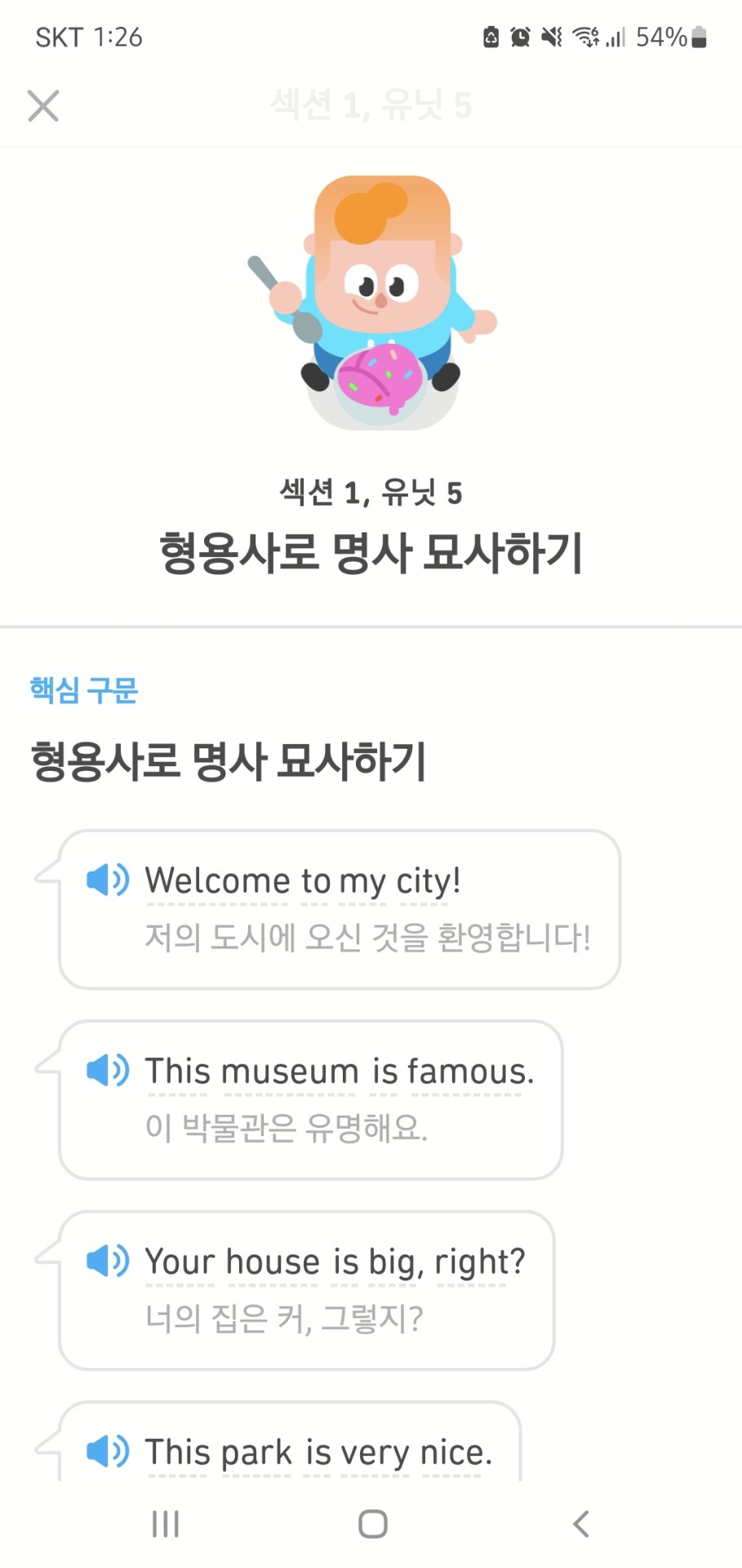
P.S. This is the comic I’ve been working on recently. It’s a BL (Boys’ Love) comic titled “Annucion.”
Here’s the logline: “Genes, an artificially created being with no experience of life, learns emotions from Hyesung and becomes his lover. However, Hyesung has a greater purpose.”
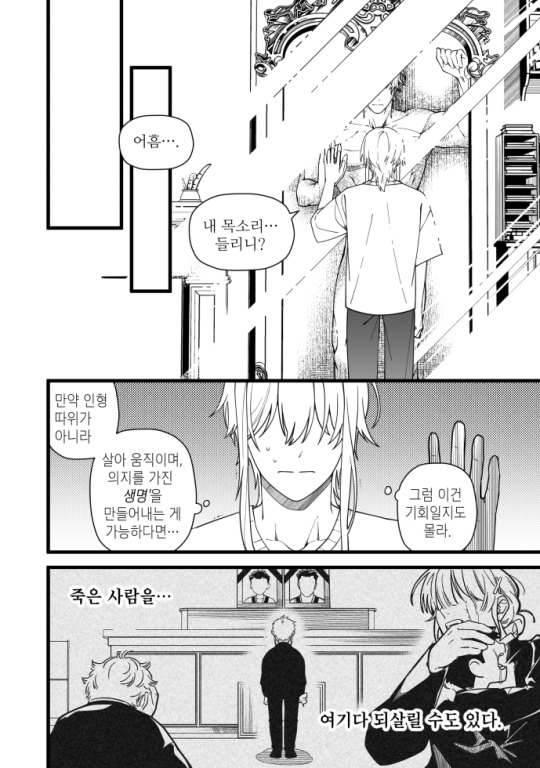
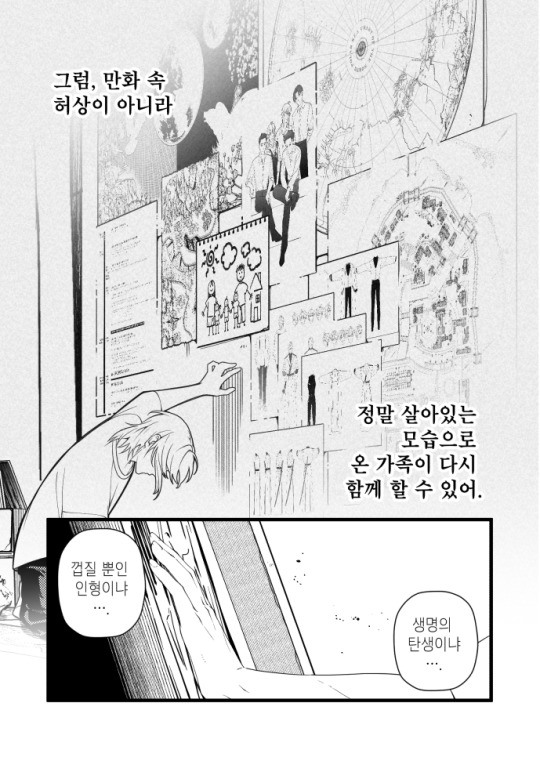
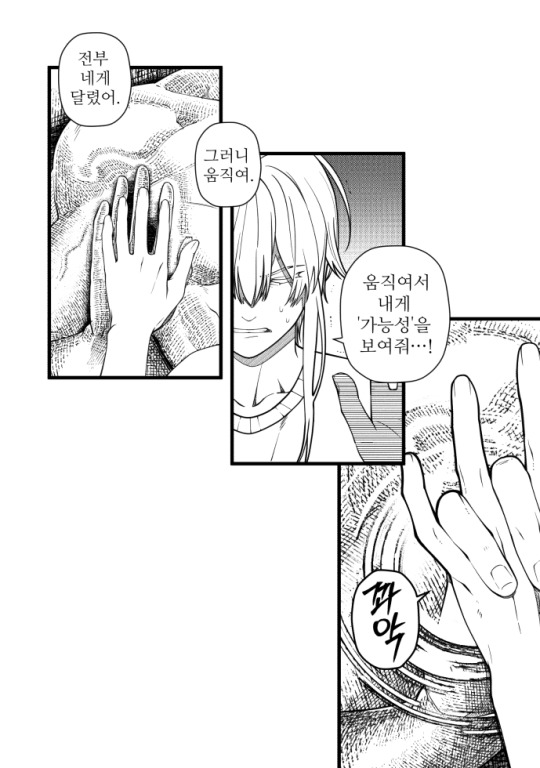
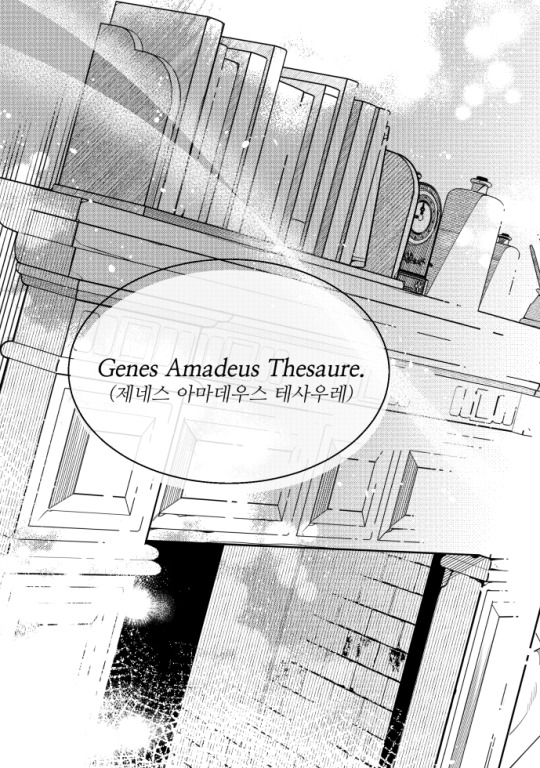
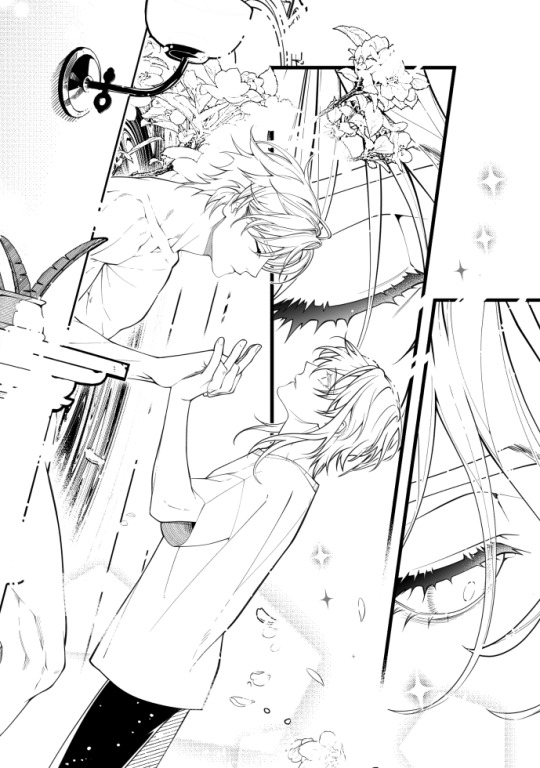
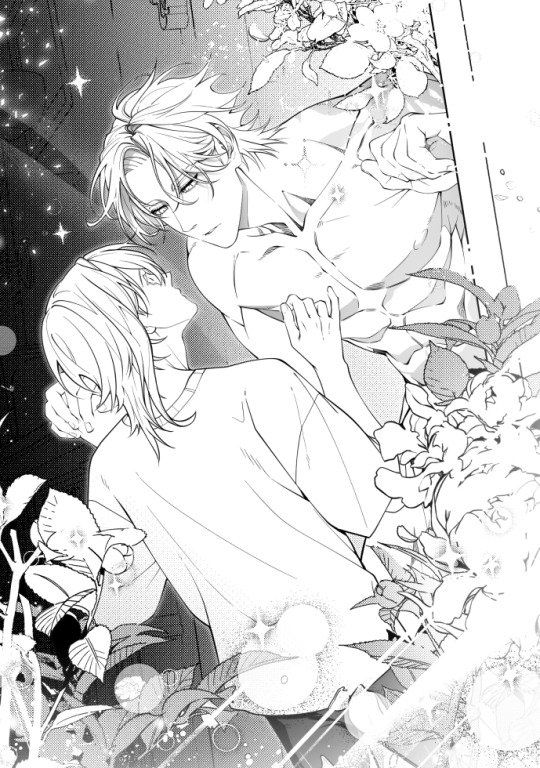
Hyesung is a man who loves drawing comics, and Genes is a character he created. This scene depicts the moment when Genes, who was once just a drawing, comes to life and steps into reality.
I wanted to create a BL comic that blends everyday life with sword-based action, so I decided to plan and develop one myself. I hope there are people who will find it interesting!
twitter: https://x.com/comet_talk1911 bsky: https://bsky.app/profile/blackcomet1911.bsky.social instagram: https://www.instagram.com/blackcomet_h/ dillyhub: https://k.dillyhub.com/space/c5d6awjwaac5omi discord:

56 notes
·
View notes
Text
More gossip!Anbu commander! Izuna proto-fanfiction for those who care.
Summary: Izuna gets it into his head that he has a duty to get Tobirama hitched.
Let me start from the beginning.
Tobirama and Izuna are getting along. Tobirama listens to Izuna's gossip and has started allowing light physical intimacy. Izuna enjoys his silence and his witticism when he actually chooses to weigh in on a situation. They spar several times a week and are constantly seen around the village together.
One evening, while the two of them are simply chatting, Tobirama confesses to having a selfish desire he wants to express. Izuna, who has never held himself from saying what he wants, tells Tobirama to just get it out.
Tobirama has, at this point realized his feelings for Izuna, but doesn't want to do anything to endanger their friendship and, y'know peace or w/e. Still Izuna prods at him until he gets him to admit that desire is, "love".
Cue Izuna's laughter - which is quickly explained by him thinking that that is the least selfish desire someone could have. Affirmations that Tobirama is loved by his family, the village, his comrades, etc. And that of course someone would be lucky to have his affections.
Still, Izuna thinks about it and it'd be a shame if Tobirama didn't pass on his genes to future Konoha shinobi. Plus it'd be good optics for both the village and Tobirama himself if he settled down with someone. He decides that it is his duty as a friend to match Tobirama up.
First he uses his profile of Tobirama to construct base traits and characteristics of someone he might find appealing. He boils it down to two approaches.
Tobirama enjoys doing things for others. One ideal is someone cute who he can spoil but who will appreciate his care.
Tobirama enjoys being challenged mentally and/or physically. The other option is a strong and smart but unambitious shinobi. Unambitious, because Tobirama being the jonin commander and thus their superior may cause unneeded tension.
What completely flies over Izuna's head is that there was someone in the village who actually fits both. Someone who's used to being spoiled and cared for. Someone who is Tobirama's perfect match in battle and in the war-room.
Someone who's his equal in status as the leader of Konoha's special forces.
Yeah... it's Izuna himself.
But he's not going to realize it before he's set Tobirama up on several blind would-be "meet-cutes" and been made to examine why, exactly, the thought of his bestie showing a side of himself Izuna's never seen to someone else enrages him so.
#tobiizu#fanfic idea#madara: He might have to spend less time with you#izuna: we're still going to have lunch together spar and hangout after work the same amount he can't function without me#madara: He'll have his lover to be emotionally vulnerable to and make sure he eats and bounce ideas off of#izuna: D:<
77 notes
·
View notes
Text
regina george, megumi fushiguro x gn!reader
reader is kinda mean. megumi is dumbfounded. not proofread i dont like this x 0.7k wc
you would’ve been the perfect fit for regina George in mean girls, at least in megumi’s opinion. unfortunately, he had become quite familiar with the movie, seeing as how you and yuji both had it in your favourites on letterbox. nobara liked it too, but she claimed it wasn’t cinematic enough to be put on display on her profile. so when megumi made the mistake of asking the pink haired what ‘mean girls’ was about, yuji had made all of them, as a group, watch said movie thrice. you were all rejoiced, except for megumi. then again, megumi was hardly ever happy. one time, you had even tried to tape his mouth into a smile, much to his dismay.
megumi thought that since you couldn’t play regina George, the universe had given you a strikingly similar sense of humour, the same mean genes the blond possessed. but if someone had told him that about an hour before, he would’ve shrugged it off. you were skeptical and a tease, but you weren’t mean.
in fact, megumi thought you were sweet when you accepted his study date at the library, toothy smile and all. sure, you weren’t aware of the fact that it was a date, because megumi did not have enough courage to inform you of that small fact, so when you asked him why it was just the two of you, yuji and nobara happened to be coincendentally busy. but you didn’t mind. you had said it was better anyways. he didn’t really know what that meant, but it definitely got his pulse elevated.
he thought you were caring and studious when you pulled out all your textbooks to study for upcoming exams. he thought you were diligent when you started furiously writing in your notebook. he thought you were odd, though, when you plopped your phone in front of you and started recording yourself. he didn’t judge though, he knew people had different ways of studying. that changed when he heard gojo’s voice through the phone and realised you were on facetime with him. he grimaced, though his eyesight glued itself back to his book almost immediately. when you coughed to get his attention, he knew he couldn’t keep on hiding his discontentment, and forced himself to look at you.
you smiled at him, all sweet and innocent, and said « megumi, would you like to hear my gojo disstrack ? »
his mind blanked. what the hell was he supposed to answer ? what type of answer would make him look cool or appealing or whatever ? luckily, he didn’t need to voice his answer for gojo’s booming voice cut through his train of thought, throwing various forms of displeasure at you. but you just smiled again and muted him, and grabbed your notebook again. megumi furrowed his brows. this was what you were up to all this time ?
you opened your mouth and began rapping. megumi was stunned yet conflicted, he wasn’t sure whether he was supposed to laugh or cry or clap. maybe a mix of all three.
a chuckle involuntarily escaped his lips when you rapped « all you eat is grease, bitch this class ain’t maccie d’s ! » and you smiled at him, so full of pride that he couldn’t help but feel his cheeks warm up.
when you were finally done, you unmuted gojo and he was quick to give you feedback. « i’m gonna f word you next week !» he shrieked, and you were quick to display your emotions on your sleeve, giggling away at his incredulous expression.
« that sounds really weird coming from a teacher. don’t forget that i can do the same ! » you retorted, and gojo was quick to reply « you can’t fail me, i’m grading your papers. » with a smug grin megumi could hear through the phone.
« no, i’m gonna get you fired. » you argued, and gojo’s expression probably dropped, because you added « stop making that face or you’ll get more wrinkles on your forehead than on your divorce papers. »
and somehow, megumi conflicted emotions turned to an impulsive urge to kiss you, applaud you or dedicating a shrine to you. that’s probably when he realised you couldn’t be regina george because that blonde would never even live up to you.
based off the disstrack i wrote for my math teacher LMFAO
i wrote this like a month ago but i got too shy to post it (i still hate it though but im running out of stuff to post)
anyway yzah hope u enjoyed mwa
#jjk megumi#megumi fushiguro#jujutsu megumi#megumi x reader#fushiguro megumi#jujutsu kaisen megumi#megumi x you#megumi x y/n#megumi fluff#jjk fushiguro#fushiguro x reader#jjk x y/n#jjk x you#jjk fanfic#jjk x reader#jjk fluff#jjk#jujutsu sorcerer#jujutso kaisen#jujutsu kaisen#jujustsu kaisen x reader#jujutsu kaisen x reader#jujutsu kaisen x you#jujutsu kaisen x gender neutral reader
49 notes
·
View notes
Text

First off, what is inherited trauma? It’s the emotional, psychological, and biological imprint of your family’s unresolved trauma—passed down through generations. You might feel it as: - Chronic anxiety - Fears you can’t explain - Unexplained health issues - Obsessive thoughts and habits But let's see what science says ↓
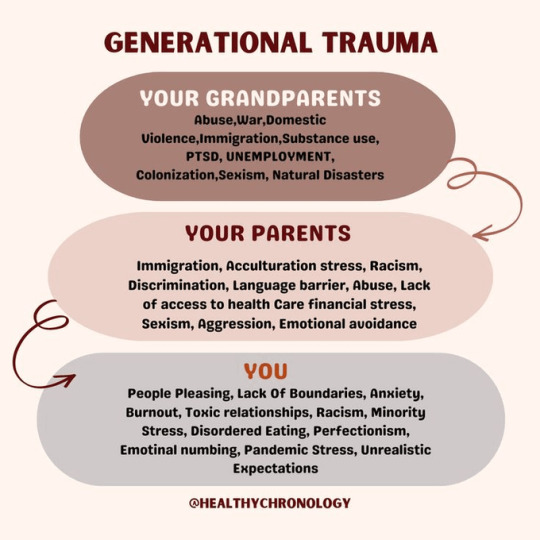
Scientists have discovered that trauma changes your genes. When your ancestors experienced trauma (war, poverty, abuse), their bodies adapted to survive. These changes—called epigenetic tags—alter how genes are expressed. Translation? You inherit more than their hair color. You inherit their survival responses.
Trauma doesn’t just shape your emotions—it rewires your biology. Studies prove it. - Offspring of Holocaust survivors exhibited altered stress hormone profiles, predisposing them to anxiety disorders and PTSD. - A study of Ukrainian families affected by the Holodomor famine revealed transgenerational impacts such as anxiety, shame, food hoarding, and authoritarian parenting styles. These biological adaptations were once survival mechanisms but now they are inherited...
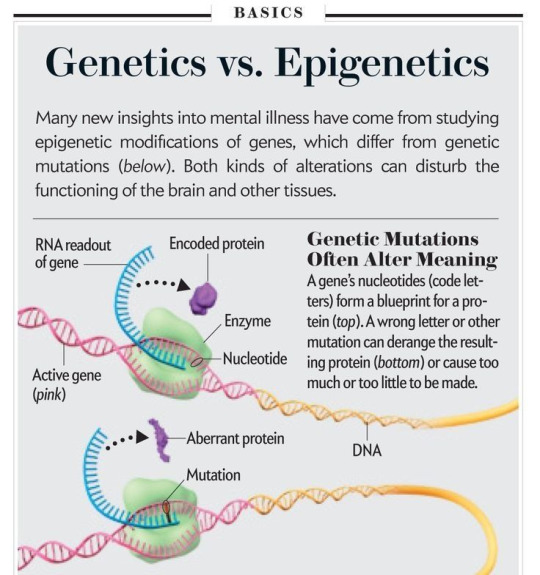
How do you know if you’re carrying inherited trauma? Here are common signs: - Recurring family patterns (addiction, conflict, failure). - Fears or beliefs that feel irrational. - Chronic stress or illness with no clear cause. These patterns will persist until they’re consciously addressed.

But here’s the good news: You can break the cycle. Healing inherited trauma doesn’t just change your life—it transforms future generations. Epigenetics changes are not permanent— they can be changed through therapeutic works at any time. As a holistic therapist, here’s what I’ve seen work best:
Step 1: Explore your family Genogram. What unspoken events shaped your family? - Loss, war, migration, abuse, or betrayal? - Secrets, silences, or "taboo" topics? Understanding these root events is essential to healing.
Step 2: Recognize inherited language. Listen for repeating family phrases: - "We never get ahead." - "It’s hard to trust people." - "Love always ends in pain." - "Money doesn't grow on trees" These beliefs often reflect unhealed trauma passed down to you generationally...
Step 3: Rewire your nervous system Inherited trauma isn’t just emotional—it’s stored in your body and nervous system. In my experience as a therapist, neuroscience-based tools are the most effective at directly healing trauma in the mind-body system. Talk therapy often falls short at this. Here’s what works instead ↓
Proven Neuroscience tools for healing: • Somatic therapies: TRE (Tension Release Exercises). • Breathwork: Polyvagal breathing to calm the nervous system. • Meditation and mindfulness: Rewire emotional responses. These tools directly reset your body’s stress response, creating lasting change...
Step 4: Rewrite the narrative. Trauma may have shaped your family story, but it doesn’t define you. Use Narrative Therapy (CBT) to shift limiting beliefs: - “I’m safe to succeed.” - “Love doesn’t have to hurt.” - “I’m free to create a new path.”
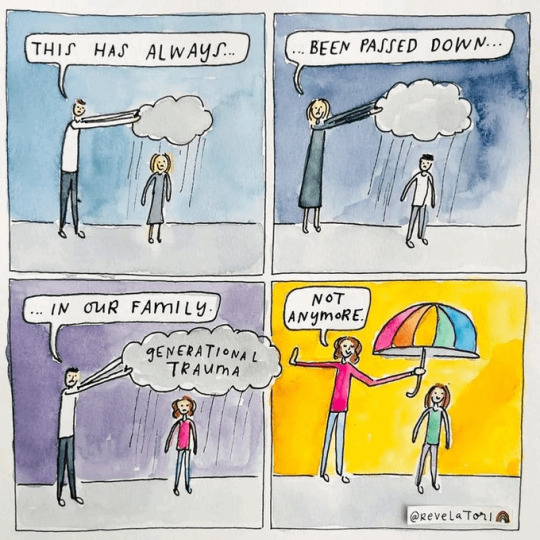
You’re not broken. Inherited trauma isn’t a life sentence—it’s a calling to heal what others couldn’t. When you do the work, you don’t just free yourself. You free your family’s past and future.
[Brian Maierhofer]
#Brian Maierhofer#trauma#bodywork#Structural Integration Atlanta#Body Alive#ReUnion Process#generational trauma#epigenetics#therapy#psychology
10 notes
·
View notes
Note
Hi! I really love your writing. I was wondering if you could write something fluffy with Eugene x reader? He’s my favorite.
Avec Les Étoiles Dans Les Yeux

Eugene Roe x reader
A/N: Hello Anon! You're in luck, because I have been on a Eugene kick after listening to Shane Taylor's podcast episode 🥺 His status as one of the fandom's favorite characters is well deserved, imo (As always, this is written for the fictional depictions from the show - no disrespect to the real life veterans!) Thank you for the request, and I hope you enjoy this 💕🕊️ Warnings: mentions of alcohol, mentions of war
The night has been loud and full of excitement. All around Berchtesgaden, parties are carrying on into the wee hours of the morning. It would seem that rules do not apply anymore, as alcohol flows freely and the loot is collected openly. And, more importantly for you, love does not seem like such a thing that needs hiding anymore.
Love tugs on your heartstrings as you walk through the night, hand and hand with Eugene. It gathers in the back of your throat, too, threatening to spill out in sobs of happiness if you open your mouth to express it. The most you can settle for is squeezing his hand and glancing at his handsome profile, watching him as he stares up at the stars, his dark eyes full of them. Avec les étoiles dans les yeux. He squeezes back.
Throughout the war, you’ve had to hide this – all the love that has grown between you and Eugene. But now, with the German surrender and rules going unenforced, who really cares about fraternization? And who, if they saw you walking together, would dare to make an assumption about where you might be going together?
When you make it back to the house that you, Gene, and a few other medics have chosen to quarter in, you both freeze in the living room. The room Eugene chose on the first night is off to the left, and yours is to the right. Now you stand at a crossroads.
He lets out a little laugh as he turns to you. “You want to . . . ? Or I could come stay with you – but only if you want to, that is.” He adds the last part quickly, a gentle blush coloring his cheeks.
“Of course.”
You follow him, slowly, into his room. The house is dark, but Gene’s warm smile lights the way. This is the Eugene that so many of the people who know him miss seeing. Most of Easy Company only sees Doc Roe, the shy but resourceful and caring medic. But you’ve come to know – to fall in love with – Eugene, the man. A man who is funny and kind and romantic. Part of you wishes that everyone else could see him like this so that they could better understand him, but sometimes you’re glad that you have him all to yourself. Like now.
Still with a bit of the party in you, you spring onto the bed, laughing as the fluffy mattress absorbs the shock. Such a different sleeping arrangement from what you had back in Bastogne, Holland, or even Toccoa, for that matter.
Gene laughs, his smile carrying to his eyes as he follows you, although he takes a seat on the edge of the bed, calmly.
“You’re beautiful, you know that?” He asks.
Now it’s your turn to blush. You don’t try to hide it, though. You haven’t in a while. Eugene does something to you, and he deserves to see it. After all, he lets you see a side of him that most others rarely experience.
“Merci beaucoup,” you say, trying to remember the little bits of French that you’ve picked up from him during the war.
He nods in approval. “Tres bien.”
In the quiet of the house, you arrange yourselves so that you’re pressed into each other on top of the bed, leaning into the peace that exists there.
“You’re good at it,” Gene says quietly. “The French, I mean.”
“Well, I figure that I need to be, so that I can come visit you in Louisiana after we get sent home.” After the words have escaped your lips, you immediately regret them. Visiting Gene is something that you’ve thought about – perhaps fantasized about might be a more accurate way to put it – a few times. Although it would be nice to think that maybe he has also been dreaming of seeing each other after the war, you can’t be sure. Especially not when you feel him freeze beside you. You bite your lip to keep yourself from admitting to anything else, any more feelings that you assume that you share. Ice water fills your stomach at the thought that maybe this is only a wartime fling.
“Actually, I’ve been thinkin’ –“ His words send panic thrumming through your veins. Who knows where he might be going with this? “ – Would you want to visit me? All the way in Louisiana?”
“Yes,” you answer immediately.
“Because I was . . .” He clears his throat, like he can unstick the words he’s trying to say. Pressed up against him, it’s impossible to miss the warmth that floods his skin as he continues, “I was wonderin’ if maybe you might want to do more than visit Louisiana. Stay a while, I mean. Or . . . maybe just – you don’t have to if you don’t want to, obviously – come home with me after they send us back.”
Is he asking you to come live with him in Louisiana? Sitting so close, he would have to be deaf to miss the way that your heart is tripping over itself in your chest. This is more than you’ve dared to imagine in your wildest daydreams.
You shift to look at him. He’s already looking at you, his expression so open and honest and timid as he waits. You could kiss him, right then and there. That would be your answer.
“Gene,” you breathe instead, all the happiness from back in the street threatening to flood over again. “Of course. I would love to come to Louisiana with you.”
He breathes a sigh of relief. “’Cause if you don’t want to, we could always go to your hometown. Or someplace else entirely.”
Once again you take his hand and squeeze it. “Louisiana sounds perfect,” you muse. And you mean it. On cold nights sitting in foxholes, he used to describe the sights and sounds of the South to you, describing it all with such love and care that you could swear his words warmed you right up. There’s nowhere else you would rather go.
“I guess I’ll have to perfect my French between now and then.”
“We can have a lesson now,” Gene says, a mysterious tone you’ve never heard before creeping into his voice. “Je t’aime.”
This time you can’t hold yourself back from kissing him. You press your lips to his cheek, smiling into the kiss.
“Easy,” you whisper. “I love you.”
A bubbly laugh, so unlike the Gene that everyone else thinks they know, escapes from his throat. “Darling, you’ve already got all the French that you need.”
#this fic title is so weirdly personal to me actually lol#eugene roe#eugene roe x reader#band of brothers x reader#band of brothers#band of brothers fanfic#my writing
167 notes
·
View notes
Text
Reference added to our archive (Daily updates!)
This could help explain why there is currently no functional treatment for persistent cough following covid.
Abstract Monocyte-derived alveolar macrophages drive lung injury and fibrosis in murine models and are associated with pulmonary fibrosis in humans. Monocyte-derived alveolar macrophages have been suggested to develop a phenotype that promotes lung repair as injury resolves. We compared single-cell and cytokine profiling of the alveolar space in a cohort of 35 patients with post-acute sequelae of COVID-19 who had persistent respiratory symptoms and abnormalities on a computed tomography scan of the chest that subsequently improved or progressed. The abundance of monocyte-derived alveolar macrophages, their gene expression programs, and the level of the monocyte chemokine CCL2 in bronchoalveolar lavage fluid positively associated with the severity of radiographic fibrosis. Monocyte-derived alveolar macrophages from patients with resolving or progressive fibrosis expressed the same set of profibrotic genes. Our findings argue against a distinct reparative phenotype in monocyte-derived alveolar macrophages, highlighting their utility as a biomarker of failed lung repair and a potential target for therapy.
#long covid#covid conscious#covid#mask up#pandemic#public health#wear a mask#covid 19#wear a respirator#coronavirus#sars cov 2#still coviding#covid is not over
15 notes
·
View notes
Text
youtube
#Cancer genomics#tumor mutational burden#genomic instability#precision oncology#somatic mutations#germline variants#next-generation sequencing (NGS)#oncogenic drivers#tumor suppressor genes#DNA methylation#transcriptomic profiling#epigenetic alterations#gene expression signatures#liquid biopsy#multi-omics analysis#genomic biomarkers#clonal evolution#chromosomal aberrations#pharmacogenomics#personalized cancer therapy.#Youtube
1 note
·
View note
Text



➜HYPERFEMININE
I am the most feminine person in the whole world, I am hyper-feminine, I am
NATURALLY hyper-feminine, all my facial features are extremely feminine, my nose,
mouth, eyes, eyebrows, cheeks, everything, everything I desire!
You have feminine energy in everything you do, everything exudes your feminine energy
I am exaggeratedly feminine in a way that makes men want to be more masculine around
me! I am the most feminine person in the world, and my femininity manifests itself in
every cell of my body
I am exaggeratedly feminine in an absolutely evident, overwhelmingly powerful way, that
makes men around me feel the desire to have me as a woman, wife, girlfriend
My feminine energy is so visibly charming, naturally and genuinely, my femininity
overflows in an overwhelming and extraordinary way
My feminine energy is a massive and visible force, I am extraordinarily feminine
I am intensely hyper feminine automatically, easily, effortlessly, already, instantly,
absolutely, tremendously, intensely, completely, totally, entirely, fully, certainly,
extremely, overwhelmingly, definitely, remarkably, obviously, manifestly, truly, really,
clearly, visibly, ideally, permanently, naturally, genuinely, positively, abundantly,
infinitely, eternally, impeccably and perfectly evident, clear, wider, enhanced, multiplied,
increasing, extensive, overflowing, supreme, abundant, highest, transcendental, extreme,
intense, infinite, supernatural, ultimate, ultimate, absolute, exceptional, divine,
transcendental, flawless, drastic, obvious, clear, remarkable, visible, tangible, apparent,
substantial, in every possible way
estrogen in my body helps shape soft and attractive facial features, with delicate features
that are extremely feminine
estrogen softens my voice, making it lighter and more melodious, increasing my
femininity and delicacy
my feet and hands are extremely delicate and feminine at this EXACT moment, I have
hyper feminine feet and hands that are cared for and healthy
my body is continually shaped by optimal estrogen levels, making me look feminine in
every way, including my hands and feet
my estrogen levels influence my facial and skeletal structure, making me have rounder
and more attractive lines, with delicate features that exude femininity
my face has extremely feminine and stunning facial features, with a perfectly
harmonious structure and proportions that exude femininity
my features are delicate, graceful and angelic,
a beauty like a doll or a princess
my eyes are incredibly large, wide and enchanting, so expressive and adorable
my face is the PERSONIFICATION of delicate femininity and perfect harmony, the
structure of my face is sculpted with impeccable feminine proportions, my side profile is
perfectly feminine, with a delicate, thin and symmetrically perfect face shape
every facial feature of mine is perfectly feminine and harmonious
my face is the essence of feminine beauty, with a delicate and rounded facial structure
that highlights my femininity
I am the ultimate expression of human perfection, every aspect of my face and body
harmonizes with a scientific precision, which surpasses any known standard of beauty,
my facial features have exact symmetry, something that studies of attraction and visual
perception identify as one of the most valued traits by humanity, EVERY inch My face
follows the golden ratio, a mathematical relationship that scientists believe is
aesthetically perfect in all cultures. My physical characteristics are the result of a “DNA
of the gods,” a genetic combination that transcends the ordinary. The genetic markers
that form my facial and body structure are so exceptional that they could be considered a
divine inheritance. The presence of genes related to beauty, health and longevity
manifests itself in every cell of MY being. The chromosomes that compose me were shaped
by evolutionary forces that favor beauty and attractiveness. My estrogen levels gradually
increase, adjusting to an ideal point where each feminine function of my body is
maximized at that EXACT moment.
My body reaches an optimal production of estrogen,
harmonizing every detail of my femininity in a healthy way that is completely natural
for my body. With the increase in estrogen production, my femininity is highlighted in a
remarkable, extremely NOTICEABLE way. Everyone is fascinated by my femininity. This
increase favors my external appearance with delicate and symmetrical features.
my ovaries produce an ideal amount of estrogen, with estrogen being released adequately
by my ovaries, every essential function of my female body is elevated to a state of
PERFECTION and BALANCE
I have a doll face
My face is completely identical to a doll
My face is extremely delicate like a doll's right now is forced
I have the most adorable doll face in the entire universe
My face is extremely proportionate to my body
My doll face is adorable
All my bones, features and facial muscles have the appearance of a doll's face
My face is extremely beautiful
My bone structure is childish right now
My face is extremely small
My face is extremely delicate
My skull and head are extremely small naturally
My face rejuvenates more than 111 years right now
My features and features are extremely perfect right now
My face is extremely childish forever and ever
My face is extremely soft like a baby's
My skin is extremely soft like a baby's
My skin is extremely smooth like a baby's
My face is extremely smooth like a baby's
Everyone says my face is very childish for my age
Everyone says my face is extremely cute
Everyone says I have the extremely soft face
I have an extremely large iris
My iris grows 111 times larger at this very moment
My iris grows like crazy at this very moment
My eyes are extremely large
My eyes grow 111 times larger at this very moment
My eyes grow like crazy at this very moment
My eyelashes are extremely large
My eyelashes grow like crazy at this very moment
My eyelashes grow like crazy at this very moment
I have an innocent look
I naturally have a full mouth
My mouth is extremely full
My mouth is drawn
My mouth is extremely drawn
My lips are thick
My lips are rounded and cute
My lips are full
My lips are reddish
My lips are extremely full
My lips grow 111 times larger at this very moment
My lips grow like crazy at this very moment
My lips are extremely hydrated
My lips are extremely soft
My nose is extremely small
My nose is extremely small like a baby's
My nose shrinks 111 times larger at this very moment
My nose shrinks wildly right now
My nose is extremely small and cute
My nose is the smallest nose in the entire universe
My nose is so tiny
My nose shrinks drastically right now
My nose shrinks exaggeratedly right now
My side profile is extremely perfect
My nose is extremely thin
My nose is very thin
My nose is thin
My nose is upturned
My nose is extremely upturned
My nose is perfect from every angle
My nose is extremely straight and beautiful
My nose is free of “hump”
My nasal hump is removed right now
My nose changes drastically that people think I had rhinoplasty
My entire face is extremely ideal
All unwanted features are blocked right now
I have perfect skin
My skin is perfect
My skin produces the necessary amount of collagen and the following vitamins: A, B2, B3,
B6, B7, C, D, E, F and K
My skin is extremely perfect
My skin is the most perfect in the entire world
My skin is the most perfect in the universe
My skin is perfect and resistant
My skin is clean
My skin is young
My skin is wonderful
My skin is strong
My skin is dazzling
My skin is smooth
I have porcelain skin
My skin is soft
My skin is extremely soft
When someone touches my face it is as if they were touching a cloud because my skin is
so soft
People always say that my skin is super soft when they touch it
My skin is like a baby's
My skin is hydrated
My skin is super hydrated
My skin is illuminated by the gods
My pores are closed
My pores are extremely closed
The universe gave me the most perfect skin of all human existence
The universe gave me the porcelain skin
The universe gave me the most youthful skin on the planet
The universe gave me the most perfect skin in all eternity
Every layer of my skin is extremely healthy
My skin is extremely healthy
The inner and outer layers of my skin are healthy
Every second my skin gets more perfect
Every second my skin gets healthier
Every second my skin gets softer
I am completely free of stretch marks
Makeup is free from affecting my skin
Makeup is completely free from affecting my skin
I am completely free of stretch marks
I am completely free of cellulite
I am completely free of any skin imperfections
I am free of stretch marks
I am free of cellulite
I am free of stretch marks everywhere on my body
I am free of stretch marks on my butt
I am free of stretch marks on my leg
I am free of stretch marks on my chest
I am free of stretch marks on my back
I am free of cellulite on my butt
I am free of cellulite on my leg
I am free of cellulite everywhere body parts
my stretch marks fade when I take a shower
my stretch marks fade when I walk
my stretch marks fade when I breathe
my stretch marks fade when I talk
my stretch marks fade when I eat
my stretch marks disappear permanently
my stretch marks are forced to disappear
my stretch marks are eliminated
my stretch marks cease to exist
I am forcibly free of stretch marks
every 1 second my stretch marks disappear
my stretch marks disappear every 1 second
your stretch marks have disappeared!! I am completely free of any kind of stretch marks
I am completely free of cellulite
I am completely free of acne
I am completely free of pimples
I am completely free of dirt
I am completely free of blemishes
I am completely free of blackheads
I am completely free of post-waxing irritation
I am completely free of bad odor
I am completely free of warts
I am completely free of stretch marks and skin inflammation
I am completely free of any imperfections on my skin
Literally free of any imperfections on my skin
My results are permanent
My results are completely permanent
I am grateful to the universe for my permanent results
my beauty is out of this world
I am perfect with and without makeup and my makeup skills are incredible, I know how
to apply makeup
my beauty is surreal
my beauty is chic and elegant
my facial expressions are perfect, I am always perfect, at all times
my facial expressions are delicate and feminine
my aura is delicate and feminine
my aura is chic and sophisticated
my smile captivates anyone, everyone is dazzled by my beauty, everyone wants to know
me more and more
my smile is capable of making anyone fall in love with me, as if by magic
I was born perfect, devoid of any imperfection
my beauty and self-esteem increase 100%
I really love myself, I love everything about me, my self-esteem is extremely high, I love
living, I love being perfect, I literally love everything about me
I love myself so much, I love seeing my reflection in the mirror, I love taking pictures, I
love being perfect, I love being me
my beauty is practically unbelievable, people are amazed hypnotized by my beauty
anything I do is iconic
I am the definition of perfection
I am effortlessly beautiful, without needing makeup or any cosmetic procedure
I have infinite beauty
my face is feminine and delicate, like wonyoung's
My beauty is inexplicable
my beauty is extremely delicate and fragile like that of a doll
my beauty is incomparable
I am totally unique
my beauty is unique and delicate
my beauty is extremely unique, only mine
my body, face, personality, speech, literally everything is delicate
every detail of my face is extremely perfect
every detail of my face is extremely is forcedly perfect
my face is extremely perfect, free from any possible imperfection in humanity and in the
entire universe
my face is like the face of a perfect goddess, delicate and harmonious
my face is extremely beautiful in everyone's sight
my face is extremely perfect in everyone's sight including myself
I am THAT girl, I am simply perfect in every aspect, face, body, aura, personality,
EVERYTHING, literally EVERYTHING about me screams perfection, I am perfect 111%, I
am EVERYONE
in every aspect, I am simply perfect, my face is flawless, with symmetrical features and a
natural beauty that draws the attention of EVERYONE around me, my body is sculpted,
with proportional curves and a sensuality that highlights my presence wherever I go
my aura is magnetic, radiating a confidence and an energy that makes everyone who
meets me feel attracted to me, at the same time, my personality is captivating, combining
intelligence, charm
everything about me screams perfection, every detail of my appearance and every aspect
of my being are in harmony, there is no one who can compare to me, because I surpass
everyone in every way
I am perfect 111%, a percentage that transcends common perfection, there is no one who
can compare to me, because I surpass everyone in every way, my presence is unmatched,
and my impact is unforgettable, I am the living definition of excellence, of perfection, and
no one can deny that
I am a 10, on a scale of 1 to 10 I am a 10! Perfection itself, I am THE DEFINITION of
perfection, I am the embodiment of perfection, a 10! “10-Perfectly conventionally
attractive
It is impossible to fail in life If you become homeless, a modeling talent scout will discover
you in less than a day”
When people see me they immediately fall in love, I have a VERY easy life, my life is
extremely easy because I am PERFECT, beautiful, wonderful, intelligent, charismatic, a
10!
my appearance is breathtaking, with every feature of my face perfectly aligned and
harmonious, my features are so symmetrical and perfect that it is impossible not to
notice my extraordinary beauty, this perfection provides me with a life full of
opportunities and ease
people are instantly attracted to me, and my natural charisma makes any interaction a
positive and memorable experience, my intelligence shines in every conversation, and my
charm captivates everyone around me, my beauty and perfection open paths for me, and
my natural talent in everything I do ensures that I always come out on top
I am an eve, my facial harmony is literally 100%, I have the best facial harmony in all of
existence, everyone considers me an “eve”, the personification of perfection, I always
appear on lookmaxxing pages!
I am even considered “not real”, it is as if my beauty was unreal! my face is unrealistically
symmetrical, EXTREMELY symmetrical, 100% symmetrical
I am an "Eve", my facial harmony is literally 100%, something that few can claim, I have
the best facial harmony in all of existence, with every feature perfectly symmetrical and
aesthetically pleasing, my appearance is not just beautiful, it is the definition of
perfection That is why everyone considers me an "Eve", the embodiment of idealized
perfection
My beauty is so exceptional that I am often FEATURED on pages dedicated to
lookmaxxing, where people from all over the world seek to improve their appearance to
achieve an aesthetic ideal, or be me, my facial symmetry is unmatched, and my presence
in these communities is constant and admired
My face is the perfect combination of proportions, symmetry and attractive features,
EVERY detail, from the contour of my face to the positioning of my eyes, is harmonious
and balanced, this level of perfection makes me a reference and inspiration for many who
aspire to achieve MAXIMUM beauty
My existence is living proof that perfection facial is possible, I am constantly admired,
recognized and celebrated for my incomparable beauty, as well as psl goddesses, such as:
Adriana Lima, Brooke Shields, Ana Paula Arosio, Megan Fox, Valeria Mazza, Margaux
Hemingway
I have a perfect face, exceptional facial harmony and distinct dimorphism, my facial
aesthetics are constantly evolving, reaching a state of perfection that surpasses even
ideal standards
from every angle and under any lighting condition, my face radiates an incomparable
beauty, I have meticulously sculpted features, including ideal facial width and length,
culminating in a perfect facial silhouette, the structure of my face, from the cranial
structure to the smallest details
my facial aesthetics transcend conventional beauty, embodying a timeless and FOREVER
youthful appeal
I am extremely feminine, very feminine, everything about me is feminine, everything, my
personality, clothes, hair, face, body, hands, feet, my curves are extremely feminine,
literally everything about me is feminine and delicate, I am hyper feminine to the
extreme, how can I be so feminine? I LOVE being feminine, being feminine is part of my
life, I love being hyper feminine, it's a trait of my personality, a part of my life
Being hyper feminine and extremely detailed is an essential part of my identity, from the
careful choice of my wardrobe to the meticulous organization of my space, I find joy and
satisfaction in every detail, every piece of clothing, every accessory and every touch in
the decoration is an expression of my femininity and a reflection of my appreciation for
beauty and precision, being one is wonderful to be extremely feminine, I love being hyper
feminine, all my features and features are hyper feminine, I love it, I'm obsessed with
being extremely feminine
I have an extremely feminine aura, I am extremely feminine, exaggeratedly feminine,
hyper feminine
My face is extremely proportional to my body
All my bones, features and facial muscles look like a doll's face
My face is extremely beautiful
My bone structure is childish at this very moment
My face is extremely small
My face is extremely delicate
My skull and head are extremely small naturally
My face is rejuvenating more than 111 years right now
My features and features are extremely perfect right now
My face is extremely childish forever and ever
My face is extremely soft like a baby's
My skin is extremely soft like a baby's
My skin is extremely smooth like a baby's
My face is extremely smooth like a baby's
Everyone says that I have an extremely soft face
I have an extremely large iris
My iris grows 111 times larger at this very moment
My iris grows like crazy at this very moment
My eyes are extremely large
My eyes grow 111 times larger at this very moment
My eyes grow like crazy at this very moment
My eyelashes are extremely large
My eyelashes grow like crazy at this very moment
My eyelashes grow like crazy at this very moment
I have an innocent look
I naturally have a full mouth
My mouth is extremely full
My mouth is drawn
My mouth is extremely drawn
My lips are thick
My lips are rounded and cute
My lips are plump
My lips are reddish
My lips are extremely full
My lips are growing 111 times more at this exact moment
My lips are growing like crazy at this exact moment
My lips are extremely hydrated
My lips are extremely soft
My nose is extremely small
My nose is extremely small like a baby's
My nose is shrinking 111 times more at this exact moment
My nose is extremely small and cute
My nose is the smallest in the entire universe
My nose is so tiny
My nose is shrinking drastically at this exact moment
My nose is shrinking exaggeratedly at this exact moment
My side profile is extremely perfect
My nose is extremely thin
My nose is very thin
My nose is thin
My nose is upturned
My nose is extremely upturned
My nose is perfect from every angle
My nose is extremely straight and beautiful
My nose is free of "hump"
My nasal hump is removed at this exact moment
My nose changes drastically that people they think i had rhinoplasty
my whole face is extremely ideal
all unwanted features are blocked right now
My face is memorable and charming, the more people look at me the more they fall in love
and want to look more
My beauty is inexplicable
My beauty is incomparable
I am totally unique
My beauty is unique and delicate
My beauty is extremely unique, only mine
My body, face, personality, speech, literally everything is delicate
Every detail of my face is extremely perfect
Every detail of my face is extremely is forcedly perfect
My face is extremely perfect, free from any possible imperfection in humanity and in the
entire universe
My face is like the face of a perfect goddess, delicate and harmonious
My face is extremely beautiful to everyone's eyes
My face is extremely perfect to everyone's eyes including myself
My face is the most delicate, harmonious, perfect, fragile, soft, ideal, magnificent,
stupendous, admirable, exquisite, beautiful, charming, attractive, masterful, dazzling,
graceful, angelic, proportionate, beautiful, majestic, impeccable, clean, and wonderful of
all universe
my eyes are the most delicate, harmonious, perfect, ideal, magnificent, stupendous,
admirable, exquisite, beautiful, charming, attractive, masterful, dazzling, graceful,
angelic, proportionate, beautiful, majestic, impeccable, clean, and wonderful in the entire
universe
my face is the most delicate, harmonious, perfect, fragile, soft, ideal, magnificent,
stupendous, admirable, exquisite, beautiful, charming, attractive, masterful, dazzling,
graceful, angelic, proportionate, beautiful, majestic, impeccable, clean, and wonderful in
the entire universe
my lips are the most delicate, harmonious, perfect, ideal, magnificent, stupendous,
admirable, exquisite, beautiful, charming, attractive, masterful, dazzling, graceful,
angelic, proportionate, beautiful, majestic, impeccable, clean, and wonderful in the entire
universe
all human beings and even non-human beings find me beautiful and divine
my nose is the most delicate, harmonious, perfect, fragile, soft, ideal, magnificent,
stupendous, admirable, exquisite, beautiful, charming, attractive, masterful, dazzling,
graceful, angelic, proportional, beautiful, majestic, impeccable, clean, and wonderful in
the entire universe
when people want to define someone who is perfect they always say it's me
I am flawless, devoid of imperfections
I am flawless in every possible way
when people look at me they see perfection before their eyes
I am the personification of the word perfection
my face is the personification of the word perfection
my body is the personification of the word perfection
when people see me they always wonder how there can be a person as perfect as me
people are enchanted by beauty every day even though they see me every day
eternal youth, my face defies time, maintaining a youthful and vibrant appearance that
impresses and enchants everyone who sees me
my eternal youth is a striking feature that seems to defy time in an impressive way, my
face and everything about me SCREAMS youth, I have perfectly smooth and radiant skin,
it shows no sign of aging, the expression lines, wrinkles and imperfections that time
usually brings are completely absent, I am totally immune to them, as if my face were
immune to the effects of the passing of the years, every feature of mine, from the high
cheekbones to the well-defined jaw, maintains a firmness and elasticity that impresses
everyone who sees me
my eyes are always vibrant, full of life and energy, without any trace of tiredness or
dullness, they radiate a youthful vivacity that is irresistible and captivating, my lips,
eternally full and soft, have a natural color that always looks fresh and healthy,
contributing even more to my youthful appearance
the texture of my skin is uniformly soft and silky, free from any irregularity or
roughness, the natural luminosity of my face reflects health and vitality, I am always at
the height of my youth, my hair, shiny and voluminous, perfectly complements this
timeless appearance
EVERY facial expression of mine is full of youthful energy, reflecting a vitality that seems
inexhaustible, the elasticity of the tissues of my face allows every smile and movement to
be graceful and natural, without any sign of aging, my face is a true testimony of eternal
youth, enchanting and impressing EVERYONE who has the opportunity to admire me
my facial expressions are always youthful, I am forever young, everything about me is
youthful, I am eternally young, I am immune to aging
I am forever young, my youth is not just a passing phase, but a permanent and
UNCHANGING characteristic, every aspect of me exudes youthfulness, my skin is
impeccably smooth and the contagious vitality that I emanate, the texture of my skin is
constantly soft and silky, free of wrinkles, expression lines or any sign of aging,
my bone structure remains firm and well defined, with cheekbones high cheekbones and a
perfectly defined jawline, features that are typical of youth
EVERY movement of mine is full of energy
I am TOTALLY IMMUNE to aging, the passing of the years leaves no mark on me, on the
contrary, it seems that time has no power over my appearance or my vitality, my
immunity to aging is evident in every aspect of my appearance
my timeless beauty is proof that I am eternally young, immune to aging, and that my
appearance and vitality are unalterable by the passing of time
my body is NATURALLY immune to the aging process, EVERY cell is constantly
regenerated, keeping my skin firm, radiant and without signs of time, my biological clock
simply freezes, preserving my appearance and vitality at their PEAK, over the years,
while others notice the natural signs of aging, my body remains in perfect condition, time
has no effect on me, it's simple
#manifestation#dolljennie#affirmations#girlblogging#it girl#manifest#positive affirmations#afirmations#hyper feminine
8 notes
·
View notes
Text
"I’ve written about innate traits of autism and adhd in separate posts, so I wanted to write about similarities and differences between these closely related neurotypes.
Innate traits of Autism are neural hyper-connection, monotropism, and bottom up processing. Innate traits of ADHD are neural hyperconnection, monotropism and holotropism, and flexible processing styles (both bottom up and top down).
Distress symptoms of each of these neurotypes are listed in the DSM as diagnostic criteria, which leads to great confusion about these neurotypes.
Some Autistic and/or ADHD people go their entire lives without any recognition of their neurodivergence - this is true for many people in our parents and grandparents generation.
Many Autistic and ADHD people are never formally diagnosed but seek out ways to affirm and support their neurotype without diagnosis.
In a fully supportive environment, an Autistic or ADHD person may not display enough distress symptoms to fit the diagnostic criteria. It’s been a joy to personally witness Autistic and ADHD children being raised by parents who understand their kids neurological needs. These parents struggle to get accommodations for their children because they aren’t displaying enough distress behaviors.
Autistic and ADHD people who mask or fawn a lot are frequently not diagnosed because masking internalizes their distress symptoms. High-masking neurodivergent people often experience a burnout episode which leads them to display a lot of distress responses which leads them to a recognition of their Autism or ADHD.
Autism and ADHD are genetically closely related. There are about 200 total genes which code for Autism & ADHD and people only need a handful of these genes to express Autistic/ADHD phenotypes. Autistic parents typically have Autistic kids and ADHD parents typically have ADHD kids but Autistic parents can also have ADHD kids and ADHD parents can have Autistic kids.
I think someday people might consider Autism, AuDHD, and ADHD to be different profiles of the same neurotype. I’m AuDHD myself so I have a difficult time making a clear distinction between what Autism is and what ADHD is.
I see validity in seeing them as parts of the same thing and also in seeing them as distinct from each other. I’m not invested in looking at it one way or the other.
To clarify what I mean by parts of the same thing I am NOT suggesting that adhd = autism or autism = adhd. I am also not suggesting that autisic and adhd people have the same support needs.
The idea that they are parts of the same thing is like saying a foot and an ear are both part of an elephant. Obviously a foot is not an ear and an ear is not a foot and the foot and ear have different needs, but both are part of the elephant.
IF Autism and ADHD are distinct parts of the same genetic neurotype, that neurotype has not yet been named.
PDA and several other types of neurodivergence could also be distinct profiles of the same overarching genetic type."
https://www.facebook.com/share/p/18eUHWJYBH/
10 notes
·
View notes
Text
[CN] MLQC Lucien’s Rumors & Secrets – Season 2: Threshold (阈值)
⚠️ SPOILER ALERT!! ⚠️
This post contains a detailed spoiler for an R&S that has not been released in EN yet! Feel free to notify me if there are any mistakes in the translation~
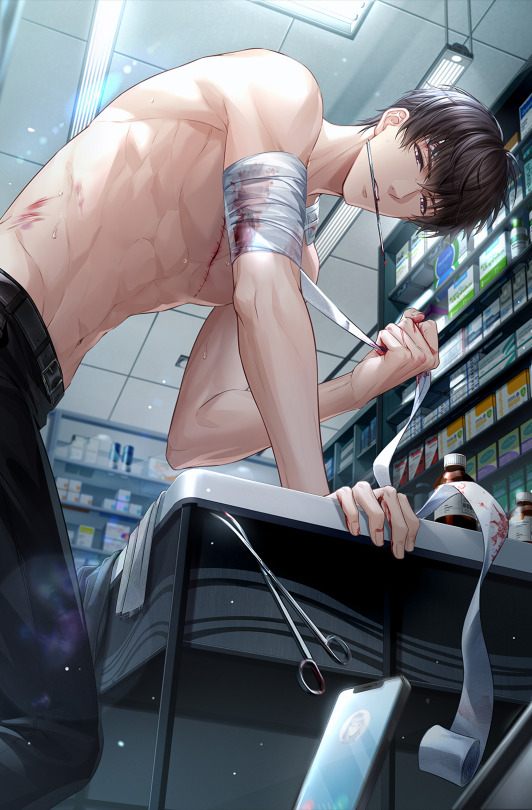
Lucien followed the doctor's pointing finger to a line on the report— a small amount of abnormal PTEN gene sequence in the cells.
“Although the abnormal PTEN is only a small amount, irreversible cancer development may occur if your deterioration continues."
"The speed of deterioration is closely related to the frequency of Evol use, so it is recommended to reduce the usage of Evol as much as possible in the future.”
Lucien nodded occasionally, his heart not experiencing significant fluctuations. This day had been expected, and it had arrived as scheduled.
[T/N] It’s advised to read S2 chapter 45 first because this R&S sets between S2 chapter 45 and chapter 51 timeline-wise. I usually translated the main story first but translating this first makes more sense chronologically AND will provide extra pain for S2 chapter 51~
ALSO, after reading the R&S please head up to S2 Chapter 51, the pain is more complete with the main story~
[Chapter 1]
“Professor Lucien, the latest clinical trial report results are out, and they are still not very promising.”
This not-so-good news didn't come as a surprise to Lucien. He nodded and said, “Ah He, you've worked hard these past few days. Take a good rest over the weekend, and next week, we'll come back to discuss improvement strategies.”
“But we've already improved almost every aspect,” Ah He swallowed the words on the tip of his tongue and glanced at Lucien's composed profile. “In addition, two new deteriorating patients have signed the drug trial observation agreement. Here are the records.”
Lucien took the file and opened it, quickly scanning the text inside.
“The first patient is forty-two years old, an Evolver with superhuman vision. Diagnosed with glaucoma seven years ago, their vision started deteriorating significantly six months ago. After genetic screening, it was confirmed that the condition was caused by deterioration.”
As he turned to the next page, Lucien's gaze froze.
....The second patient is a Water-type Evolver, but the symptoms of deterioration are widespread malignant lymphoma.
“Based on previous cases, the direction of Evolver deterioration should be closely related to their own Evol attribute,” Ah He showed a puzzled expression, “and this patient's symptoms were an exception, with a more unstable rate of deterioration than ordinary patients. Perhaps this could be a discovery in the study of deterioration illness.”
Lucien glanced at the photos of the young man again. Although his impression wasn't deep, he quickly found this person in his memory – he had appeared in one of BS's Evol modification experiments many years ago.
“The individual cases don't have high reference value. We need to expand the sample group and continue to watch for similar cases of deterioration.”
“Understood, Professor.”
Back in his office, Lucien spread out the two reports in front of him. The deterioration index line graph in the first report steadily increased over time like most of the patient data he had seen. However, the line graph in the second report suddenly spiked at a certain point in time after a long period of stability.
Lucien unlocked his computer screen, and a medical report appeared on the screen. The diagnosis result, highlighted in red and bolded was glaring and prominent – “Gene Deterioration Detected.”
The deterioration level line graph in the report progressed steadily, almost identical to the first half of the line graph of the second patient on the desktop.
As the report page slowly scrolled upward, a profile picture gradually appeared in the upper right corner.
He glanced indifferently at his own face in the photo, closed the document, and leaned back in his office chair, closing his eyes to rest.
The heart within his chest cavity beat steadily, just like every other day, strong and composed. No changes appeared to have occurred, yet hidden beneath the surface, there seemed to be an undercurrent that was difficult to detect, waiting for an opportunity to stir things up.
His brief reverie was interrupted by the ringing of his phone.
“Hello, Mr. Lucien. Your latest lab test report is ready. Please come to the laboratory during business hours to collect it.”
[If you remember- In S2 chapter chapter 31-1 Lucien mentioned that his situation regarding blood disease is unique. From this R&S I guess what he means by unique situation is that his deterioration wasn't REALLY bad until he started to overuse evol, mainly for the sake of protecting MC. This evol overuse will get worse in S2 chapter 51 :D]
-
[Chapter 2]
“Have you experienced any discomfort in your body recently? Have you used Evol?”
“Everything has been normal. I've used Evol a few times, but not excessively,” Lucien quickly counted the number of times he had used Evol in his mind over the past month.
It was around seven or eight times, within a manageable range.
The doctor pushed the report in front of Lucien with a serious expression. “Your deterioration had been well-controlled previously, but this time, there are changes in various indicators. Platelet count has decreased, and there might be a slight impact on your clotting function. Additionally—”
Lucien followed the doctor's pointing finger to a line on the report— a small amount of abnormal PTEN gene sequence in the cells.*
“Although the abnormal PTEN is only a small amount, irreversible cancer development may occur if your deterioration continues. The speed of deterioration is closely related to the frequency of Evol use, so it is recommended to reduce the usage of Evol as much as possible in the future.”
Lucien nodded occasionally, his heart not experiencing significant fluctuations. This day had been expected, and it had arrived as scheduled.
(T/N: PTEN is a tumor suppressor gene that plays a critical role in regulating cell growth and preventing the formation of tumors. And since his platelet count is decreasing, it'll be HARD to stop his bleeding)
The hospital wasn't far from the bioresearch institute, and he reached his office right on time for work. As usual, he opened his computer and pulled up the latest clinical reports on anti-deterioration medications that he had just received in his email.
Among the patients participating in the clinical trials, 42% showed some level of deterioration control after taking the medication, with 8% experiencing particularly positive results. However, for nearly 58% of the remaining patients,...
The research on the medication had been ongoing for nearly a year, yet it still couldn't achieve the expected efficacy. Lucien carefully examined the data on the screen, tapping his fingertips lightly on the desk.
Incomplete Evol genes could lead to abnormalities in the human body, but why would the highly praised “evolutionary” Evol genes lead to such destructive deterioration?
Could it be that Evol eliminates those who cannot withstand its power? Or is the deterioration of Evolvers, to some extent, a part of the world's evolutionary process?
Some vague thoughts raced through his mind, and Lucien allowed them to linger, making a mental note as he continued to focus on the report in front of him.
As the sunlight gradually intensified, shifting towards the other side of the skyline, Lucien took a deep breath, preparing to take a short break.
Just as he closed his eyes, his ears picked up three quick knocks on the door. The third knock was slightly heavier, a habit unique to Pete.
“Come in.”
The door swung open, and Pete briskly walked up to the desk, handing over a stack of research reports.
“Professor, there have been new developments in the experiment data regarding the neuronal position for maintaining neuron function. Detailed results and data are all written in the report. We can start the next phase of experiments tomorrow.”
Lucien quickly glanced at the data and results on the report, and he smiled.
“The results are even better and faster than I had imagined. After work, you can take everyone out to celebrate. Consider it a team-building event, and the institute will reimburse it.”
“You should join us too; the rapid progress of the experiment owes much to the insights you've given us. Everyone wants to thank you.”
Lucien paused for a moment, then continued nonchalantly, “Make a reservation for one more seat, and thank you for your hard work.”
“Sure thing! I'll go inform the others right away.”
After Pete left the office, Lucien shifted his gaze to the dormant screen. He saw his own blurry silhouette, and the lingering smile on his lips confirmed his fleeting good mood.
Maybe... He agreed a bit too quickly just now.
Lucien shook his mouse, and a dense data set appeared on the screen again. It was an observation report from NW on unusual energy fluctuations within Loveland City, as well as the strange phenomena they had generated. This report piqued his interest, and according to the original plan, he should have worked late to finish this research tonight.
However, occasionally participating in such activities could be beneficial for teamwork. Lucien hesitated for only three seconds before saving the document and shutting down the computer.
-
[Chapter 3]
“Swoosh-”
The clear water rinsed away the remnants of liquid in the test tube, and a momentary daydream washed over his relaxed mind. The scene from this morning when he left home reappeared before his eyes.
As Lucien opened his door, the opposite door also swung open, and a girl rushed out with a box of milk in hand. Her hair was slightly disheveled, clearly a result of rushing and not having time to tidy up for work.
He smiled faintly, but strangely, she seemed completely unaware of his presence and focused on her phone, anxiously waiting for the elevator.
In the next moment, the girl's figure seemed to “disappear,” but the elevator remained on the top floor, not descending.
He was briefly taken aback but quickly realized that this was likely the phenomenon caused by the energy fluctuations he had recently seen in the NW observation report on Loveland City. The unknown energy disturbance in the vicinity had created a “rift” in spacetime, and the girl was merely a projected illusion.
The sound of glass clinking brought Lucien back to reality, and he noticed that the test tube in his hand had bumped into the beaker.
“Professor, are you feeling a bit tired? Maybe I should take care of this for you,”
Lucien smiled in response to Pete's concern and began placing the lab equipment into the washing machine. “No need, nothing is pressing right now. I'll consider organizing equipment as a form of rest.”
Although the work on hand was never-ending, under her supervision, he had already learned to carve out some breathing space for himself.
During moments of complete relaxation, unexpected thoughts often diverged in his mind, which brought him happiness. However, lately, whenever he tried to clear his mind, the girl's image and voice would involuntarily “visit” him.
Seeing the slight, involuntary upward curve of his lips, Pete gave him a knowing look and half-jokingly asked, “Professor, are you going on a date later?”
“She's been quite busy lately.” Lucien subtly concealed the thoughts he had inadvertently revealed just now and continued, “Pete, have you chosen a topic for your thesis?”
“It's almost ready. This time, I plan to research 'Using Evol Energy to Stimulate Brain Cells for Alzheimer's Disease Treatment.' I'll put together a formal document for you to review.”
“I remember you were interested in brain memory restoration and extraction before, and you had many intriguing ideas. Are you not planning to explore that area this time?”
“Afterward, I reconsidered. There's more literature available on Alzheimer's disease, and the current market demand is higher. It seems like a more prudent choice.”
Lucien's gaze shifted slightly, not missing the hint of regret that flashed in Pete's eyes.
“I actually think that if it's a topic that interests you, you should give it a try,” Lucien blurted out his most direct thought, receiving a surprised look from Pete.
“What everyone else is doing may be the safer choice, but it's not necessarily the best choice.”
“Uncharted territory doesn't always equate to a dead end; it's just that, in many cases, people tend to instinctively seek the safer path.”
“But in research, the most valuable quality is the persistence to explore and seek knowledge.”
On the way back home, Lucien continued to contemplate the events of the afternoon.
In the realm of scientific research, aiming for safety was not necessarily a mistake; it often led to higher success rates. So, when he made that suggestion, it wasn't solely from an objective standpoint but also a personal desire that the researchers he had mentored could challenge more difficult domains.
Suddenly, a faintly familiar sweet fragrance wafted to his nostrils. He followed the scent and turned to see her favorite cream puff shop.
“Maybe I should buy one and give it a try.”
A few minutes later, Lucien sat on a park bench holding a freshly baked cream puff. He wasn't particularly fond of cream puffs, but the idea that had occurred to him a moment ago had struck without warning. Before he could contemplate the reason behind this thought, his body had already acted on it.
The cream puff, still warm inside its paper bag, emitted a subtle fragrance. He took a gentle bite, the crispy outer shell giving way to the creamy filling, creating a delicate taste on his tongue.
This cream puff wasn't overly sweet and the sweetness that could be detected was minimal.
This subtle sweetness triggered dopamine, and an inexplicable sensation gradually spread from his chest to his limbs. It seemed like his brain had received this pleasurable signal, making him feel considerably more relaxed.
So, this was what she meant by the happiness brought by sweets.
He slowly savored each bite of the cream puff.
Lucien knew that an irreversible change had occurred within himself.
[This behavior of trying new things and impulsively doing something feels like 'my time in this world won't be too long anyway' :""]
-
[Chapter 4]
Inside the research lab, the mechanical hum of instruments droned on rhythmically, and the stark white lights cast a cold silver gleam on the metal plaques with “NW” written on them.
“Blood pressure stable, sinus rhythm normal, no adverse reactions.”
“According to the drug's suggestions, he will act according to our instructions after leaving this lab.”
Lucien glanced through the glass at the person lying on the observation room bed.
“Conduct thorough post-experiment observations, don't overlook any minor irregularities.”
“Alright. Also, Professor Lucien, your ETL-147* drug trial application has been approved, and you need to sign the liability waiver.” The lab technician handed the paperwork to Lucien, looking somewhat hesitant.
“Are you sure you want to personally participate in the drug trial? Although we've conducted preliminary human trials, we haven't done large-scale clinical trials yet, and there are certain risks involved.”
Lucien quickly signed his name. “Trying it myself is the only way to discover areas that may need improvement.”
[I was right about Lucien experimenting on himself with that drug :"D. Anyway, ETL-147 is the same drug from S2 chapter 45]
“Once you've decided, you'll need to receive the injection within the confines of NW with someone present, as per the regulations.”
“Then let's do it now.”
Declining the researcher's offer to assist, Lucien skillfully rolled up his sleeve and disinfected the area. As he watched the liquid in the syringe decrease, he blinked slightly, concealing some contemplation.
“You can go ahead, I'll observe here for half an hour. If there are any issues, I'll reach out to you.”
He watched the researcher leave and then lowered his gaze to his arm, which had a tourniquet in place. Testing the drug on himself wasn't solely for drug research. He could increasingly feel that something was changing within him, hiding and flowing in the gaps of his nerves, elusive and slipping out of his control.
That's why he needed insurance.
He didn't wait for half an hour and left the observation room. The solemn and cold corridor echoed only with the light sound of his footsteps. Each corner had a circular surveillance device with a flashing red indicator light, watching his unhurried steps. He paid little attention to them as he arrived at Archive Room 8.
“Authentication personnel, Lucien. Authorization Level: Three.”
With a beep of an electronic tone, the door to the archive opened for him.
Rows of gray filing cabinets stood in order. He walked deeper into the room, stopping at the second-to-last row. From one of the shelves, he pulled out a file box.
“Blood Disorders and Deterioration Case Files.”
He opened the lid and browsed through the materials inside. During his involvement in the research of anti-blood disorder drugs at NW, Lucien had seen most of these files. As he turned a page, his slender fingers paused.
“Code **, deterioration level reached as high as 95%, reversed deterioration after ** experiment, and after a period of observation, full recovery of human functions, deterioration level reduced to 7%. Detailed information requires special-level clearance to access.”
Looking at the encrypted data, Lucien's lips curved upward without a hint of a smile. He returned the file box to its original place.
It seemed there were quite a few deals he could make here.
-
[Chapter 5]
“To see a world in a grain of sand, and a heaven in a wild flower. Hold Infinity in the palm of your hand, and eternity in an hour. A truth that’s told with bad intent, beats all the lies you can invent...”
(T/N: From the poem Auguries of Innocence written by William Blake. For Blake there's such thing as white lies. Because 'A truth that's told with bad intent' is worse than any lie, because some lies can be well-intentioned)
Under the camphor tree swayed by the autumn breeze, he softly recited verses from the book. Sensing the girl in his arms gradually breathing deeper, he closed the book and gently brushed a strand of hair from the corner of her eye.
In the warm breeze, Lucien slowly opened his eyes, gazing at the familiar cold white ceiling of his office, feeling a slight sense of déjà vu.
This was the fourth time in these seven days that he had dreamt of her.
Since the deterioration, he had hardly experienced any physical discomfort. However, the frequency of thinking about her had increased significantly. He didn't resist this feeling; in fact, every time he thought of her unintentionally, the neurons in his brain transmitted a sense of pleasure to every cell.
He ran his fingers over his knuckles; the wounds from his struggle with GR had scabbed over, but she still applied bandages to them cautiously. Lucien pressed his temple to clear his mind a bit, then returned to his desk, opened a document, and entered the latest date.
“Dreamt of her in a dream, vivid memory of dream content, but ruled out as a recollection.”
After recording this, he opened his email.
This was the latest data on energy fluctuations within Loveland City. On the vast map of Loveland City, there were numerous unusual energy fluctuations. After comparing the fluctuation charts for each period, he noticed the locations where fluctuations were concentrated at different times.
Approximately 36 days ago at around 18:39, Central Park. He and the girl had gone to the night market in the park after work, and they had dinner at a street food stall.
Approximately 27 days ago at around 12:25, the Life Sciences Institute. She came to bring him lunch and, in passing, asked him about the topic for the next program.
15 days ago at 23:48, his apartment. To celebrate the upcoming weekend, they stayed up late watching a movie and didn't return home until very late. She stood at his doorstep and bid him goodnight.
Nine days ago...
The light from the screen reflected a coldness in his pupils as he stared at the map with red markers blinking in different locations.
The center of the fluctuations, once again, was that source of power that had captivated countless people—CORE.
The more beautifully the flower bloomed, the more it attracted annoying flies.
A sudden sense of irritation welled up within him.
What would it take to keep those ill-intentioned insects away from this deeply-rooted flower?
“Snap.”
The light sound shattered the silence as the pen fell to the ground and rolled twice before coming to a stop by his feet.
That sudden absurd idea had torn away all pretense, revealing the raw instinct in its entirety.
— If she had her own path, she shouldn't be trapped by him.
— Don't restrain yourself with rationality, look at your true heart.
Perhaps that dream had already given him a hint. The scales in his heart had gradually tilted away from reason, moving in an unexpected direction.
— She withstood all the wind and rain that came her way, growing resiliently into someone he found truly remarkable. He couldn't encase her within his protective glass cover.
— Are you really don't expect it? Really don't want to possess her? Humans are inherently greedy. Indulgence is human nature.
Lucien felt as though there was a consciousness from a deeper layer detaching from his body, standing at a higher vantage point, watching with keen interest as the two voices in his mind continued their ongoing debate.
Perhaps his own deterioration graph had already started its inexorable ascent towards an unpreventable height, progressing towards the final moment that could arrive at any time.
He suddenly realized that he wasn't as averse to facing that moment as he thought. All the changes in his body were intriguing, both evolution and destruction.
Cells and genes evolved over countless years to adapt to their environment, giving birth to more complete species. However, the incompleteness of the Evol gene led to human deterioration, going in the opposite direction of evolution.
Perhaps Evol held a meaning deeper than “evolution” and “power,” a meaning that no one, including him, had yet to comprehend.
His phone vibrated suddenly, bringing the storm in his mind to an abrupt halt. The girl's name accompanied a text message that appeared before him.
“Do you have time tonight? I found a new barbecue place on Huapu Street.”
“Of course, I'll pick you up after work.”
Perhaps he shouldn't see her now; if he did, this imbalance might intensify rapidly.
But why not indulge in something that brought him happiness?
Lucien closed his eyes.
This self-observation finally introduced more significant variables.
-
NEXT STOP-> [S2 Chapter 51]
#first heart disease now CANCER??? pg you should stop giving this man every diseases known to human#SOO excited translating S2 ch 51#mlqc lucien#mr love queen's choice#mlqc cn#mlqc spoiler#mlqc#mlqc translation#mr. love queen's choice#mr love lucien#mlqc xu mo
55 notes
·
View notes
Text
Hi everyone,
I found a fascinating article talking about the link between the gut micro biome and autism. Here are some excerpts from the article:
“A new paper, authored by no less than 43 scientists of various disciplines, has found the strongest link yet between gut microbes, host immunity, genetic expression in the nervous system, and dietary patterns.”
“Today, scientists know that people with autism are more likely to experience gastrointestinal issues, such as constipation, diarrhea, bloating, and vomiting.
What's more, in recent years, researchers have begun to find links between the makeup of microbes that call our guts home and neurodevelopmental disorders, like ASD.
Nevertheless, this connection isn't always consistent, and some experts have argued it isn't gut bacteria that trigger ASD, necessarily; it could be that kids with autism are more likely to restrict their diets because of 'picky' eating, which in turn influences the kinds of bacteria that persist in the digestive tract.
The new study incorporates 10 existing datasets on autism and the microbiome, plus 15 other datasets regarding dietary patterns, metabolism, immune cell profiles, and gene expression profiles of the human brain.”
The full article will be below in case anyone would like to read more.
Autism
#autism#actually autistic#autism and the gut#autism and the GI tract#autism and physical health#gut microbiome#feel free to reblog/share#tw bright colors#tw eye strain#source: ScienceAlert
71 notes
·
View notes
Text
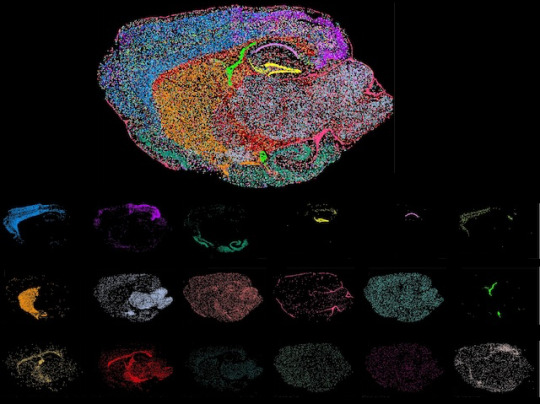
All Together Now
Profiling single cells within tissues according to the activity of multiple genes using methods called Fluorescence In Situ Hybridization of Cellular HeterogeneIty and gene expression Programs (FISHnCHIPs) enables mapping of cell types within a tissue while preserving its architecture. Different cell types in a mouse whole brain section are shown in the image individually and as a composite
Read the published research article here
Adapted image from work by Xinrui Zhou and Wan Yi Seow, and colleagues
Genome Institute of Singapore, Agency for Science, Technology and Research (A*STAR), Singapore, Singapore
Image originally published with a Creative Commons Attribution 4.0 International (CC BY 4.0)
Published in Nature Communications, March 2024
You can also follow BPoD on Instagram, Twitter and Facebook
12 notes
·
View notes